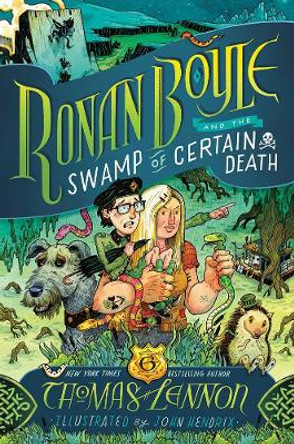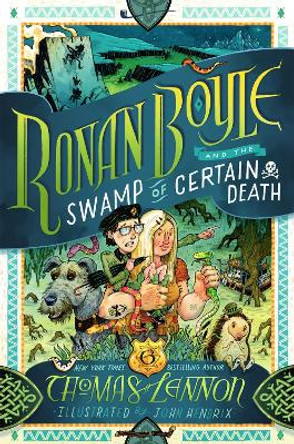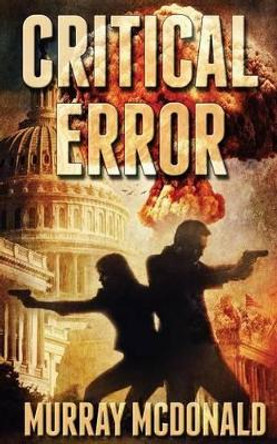Description
About the Author
Ronan McDonald is lecturer in the School of English and American Studies at the University of Reading. His interests include the history of twentieth-century literary criticism, especially its intersections with ideas of 'value'. His recent publications include Tragedy and Irish Literature: Synge, O'Casey, Beckett (2002), The Cambridge Introduction to Samuel Beckett (2006), and a special issue of the Yearbook of English Studies (2005) on 'Irish Writing since 1950'.
Reviews
Mentioned on www.pensioneronline.com -- Pensioneronline
"[A] satisfyingly chewy new book" -- Prospect Magazine
Title mentioned in Times Higher Education Supplement, March 2008
"The Death of the Critic is a concise and persuasive argument for the necessity of an engaged, evaluative criticism of literature, one in which critics address readers instead of each other." -Post No Ills Magazine
"McDonald's argument is witty and persuasive" English Drama Media Journal, October 2008
Author review of another book, menion of this book at end credits, The Observer. 4 January 2009.
"in the best tradition of the incisive criticism, McDonald offers an extreme polemic in order to provoke the discipline to interrogate the consequences of its practice" Edinburgh Review, Dec 2008 -- Ross Alloway
The virtue of this book is that, while it is a strong protest against what has been a prevailing climate in English departments, it is neither blimpish nor complacent. ...his regrets have been expressed with irresistible clarity. --Times Literary Supplement
"Whenever you think of this 21st-century world, McDonald's assessment poses serious question that beg for specific application...When McDonald argues that criticism needs to be more evaluative, he isn't talking thumbs up or down. He means criticism that takes seriously the role of engaging with the issues and aesthetics of the work at hand...So that eye-catching but perhaps overstated title is a bit of a misnomer. The critic isn't dead. In fact, the defibrillators that can bring him or her back are all around us, and you can find many of them in this smart, useful little book." -John Freeman, The Boston Globe, March 5, 2008 -- John Freeman
"McDonald has penned a passionate four-chapter eulogy for a practice that he believes can be reborn...in a pair of core chapters- about critical value, and science and sensibility- McDonald's phrasing and historical erudition are as sharp as the bloody knife on the cover." -San Francisco Bay Guardian
"[A] deft polemic, ... the virtue of this book is that it is neither blimpish nor complacent ... [and it is ] expressed with irresistable clarity." John Mullan, The Times [Web], Thursady 13th March 2008
Reviewed in German by Thomas Vaessens, Boeken, 8th February 2008.
"The thorniest reasons for this cutback, the ones that deal with internal fractures within criticism itself, are just now beginning to be addressed. In his provocative, enormously informative new book, "The Death of the Critic," Ronan McDonald dives into this territory with both sleeves rolled up. He traces the current suspicion of the critic's role to debates that have raged since Plato. Forget about bloggers, cut-rate publishers, and amazon.com (the usual suspects); the critic's killer, McDonald argues, is criticism itself. ...The critic isn't dead. In fact, the defibrillators that can bring him or her back are all around us, and you can find many of them in this smart, useful little book." --John Freeman, Boston Globe -- John Freeman * Boston Globe *
"A lively, rigorous argument for the future of criticism." Brian Dillon, Irish Times -- Brian Dillon, Irish Times * Irish Times, The *
Author reviews another title, book mentioned. * Irish Times, The *
"McDonald argues that crowing blog-based citizen opinionistas, triumphant over shrinking print media coverage of books are simply kicking a dead horse; the lit critic, it seems, was killed already by the an out-of-control sense of cultural relativism, which has over the 20th century wormed its way into literature programs, engendering artistic and aesthetic relativism. McDonald contends that the idea of artistic expression's equanimity, and the subsequent equanimity of opinion regarding that expression, has marginalized the important and difficult work of honestly evaluating artistic worth. Emphasizing literature, his specialty, McDonald illustrates how trendy efforts to make art more scientific, more academic or more cultural ultimately undermine its role as art, making it more difficult (if not impossible) to consider with the language of art. McDonald illustrates how specific movements-including romanticism, fin-de-siecle and radical aesthetic individualism-have obscured and in some cases removed entirely those traditional standards of value. A daring, but fitting, comparison between aesthetics and ethics shows how standards may be relative but are never irrelevant; McDonald's cogent, largely convincing attempt to pin the critic's murder on relativism is sure to raise eyebrows among academics, though it doesn't do much to instill hope of the critic's resurrection." (Dec.) -Publishers Weekly * Publishers Weekly *
Book Information
ISBN 9780826492807
Author Dr Ronan McDonald
Format Paperback
Page Count 224
Imprint Continuum International Publishing Group Ltd.
Publisher Bloomsbury Publishing PLC
Weight(grams) 206g










